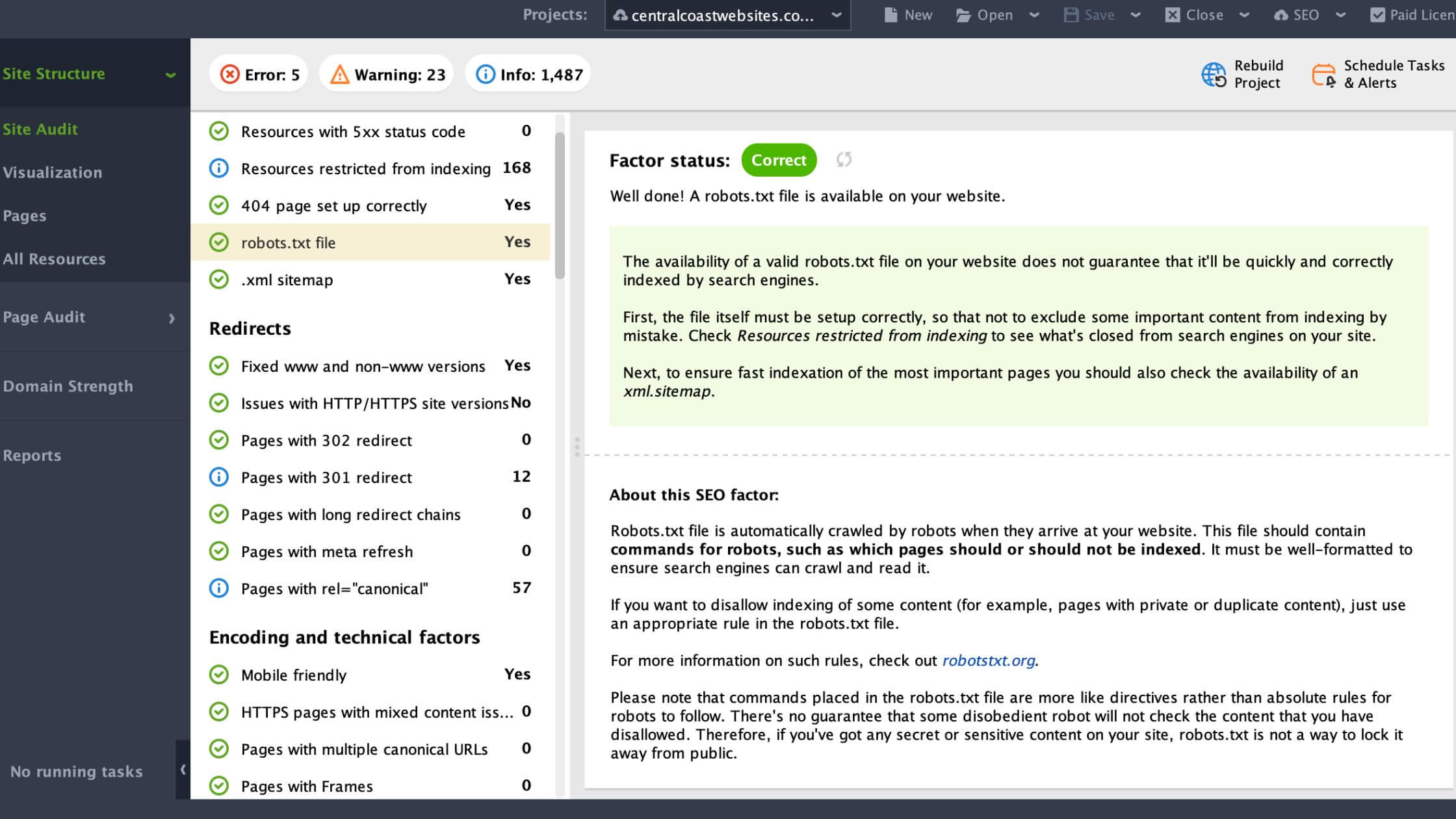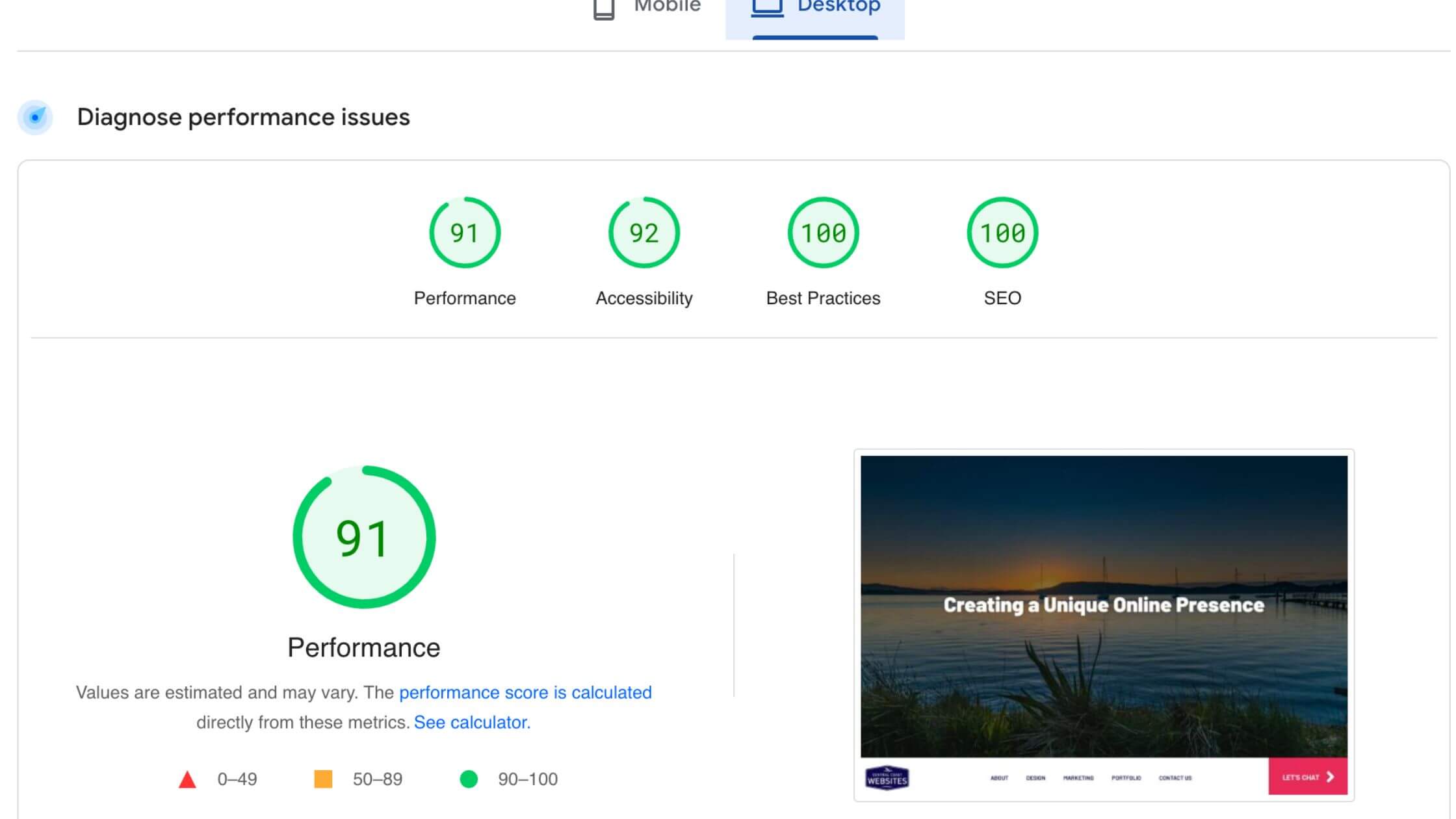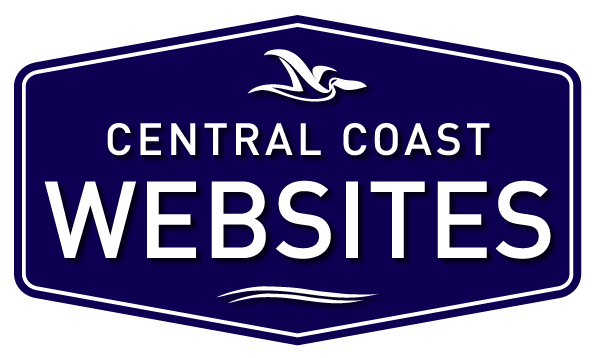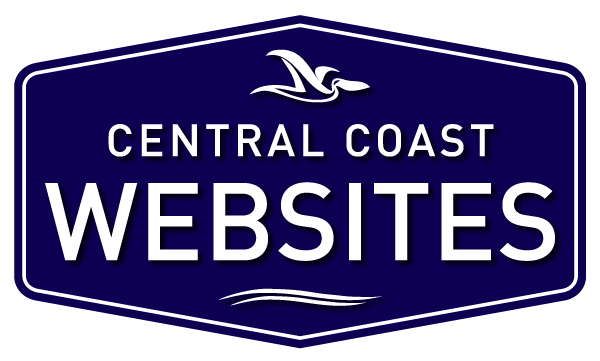Technical SEO:A Foundational Guide for Your Website's Success
In the digital space, your website is the digital foundation for your business, guiding potential customers to your products and services. However, even the most aesthetically pleasing and content-rich websites can go unnoticed without proper search engine optimisation (SEO). While many might focus on keywords and content as the heart of SEO, there’s an underlying layer that’s critical for your website’s visibility: Technical SEO.
Technical SEO is the robust framework that supports all other aspects of your strategy, ensuring your site is accessible and understandable to search engines. It’s what allows your digital presence to be indexed and ranked, connecting your business to the world.
It’s a common scenario we encounter: many businesses entrust the creation of their websites to friends or use off-the-shelf templates from Wix or Square Space. While these sites may appear satisfactory on the surface, they often lack consideration for the crucial technical aspects of web design. The most fundamental of these aspects is making the site visible to search engines like Google. A visually appealing website is just the beginning; it’s the unseen, technical framework that plays a pivotal role in drawing the digital map that leads customers to your virtual doorstep. We recognise the gap that exists for many site owners, and this guide aims to bridge that by demystifying the technical foundations necessary for online visibility and success.
Demystifying SEO.
Search Engine Optimisation (SEO) might sound like a complex concept, but at its heart, it’s about ensuring your website becomes the go-to destination for your audience. Think of SEO as the art and science of making your website more appealing not just to visitors, but also to the search engines that guide them there. It’s a crucial element in increasing your website’s visibility, helping your business climb to the top of search engine results and stand out in a crowded digital landscape.
SEO isn’t a single action but a collection of strategies and techniques aimed at enhancing your online presence. Picture it as a multi-layered approach where each layer, from the words on your page to the way other sites link to you, works together to boost your online visibility.
Within this broad spectrum, technical SEO is the nuts and bolts — it ensures your site is structured in a way that search engines can easily understand. This is just one piece of the puzzle, complementing other key areas like content marketing, which entices and engages your audience with valuable information, and off-page SEO, which builds your site’s reputation and authority through external links and social signals. Together, these strategies form a cohesive framework that can elevate your website from obscurity to prominence.
What is Technical SEO?
Technical SEO involves optimising the technical aspects of a website to meet the modern search engines’ requirements and aims to boost organic rankings. It is a meticulous process that involves ensuring search engines can easily crawl, index, and render the website’s content. At its core, technical SEO is about refining the website’s architecture to facilitate a smooth and efficient interaction between the website and search engine bots.
The essence of technical SEO lies in its focus on the website’s infrastructure, which includes:
- Crawling: Making sure that search engine spiders can navigate through the site without any issues.
- Indexing: Ensuring that the pages are organised so that search engines can store and recall them from their vast databases.
- Rendering: Allowing search engines to not only read the site’s content but also see it as a user does.
- Website Architecture: Structuring the website in a way that is logical and user-friendly, which in turn helps search engines understand the hierarchy and relevance of the information presented.
By addressing these technical necessities, technical SEO sets the stage for a website to become more discoverable, more navigable, and ultimately more competitive in the search engine results pages (SERPs).
The Role of Technical SEO in an Overall SEO Strategy.
Technical SEO is a critical element of an overarching SEO strategy. It focuses on optimising the infrastructure of a website to enable search engines to crawl and index its content efficiently. While SEO encompasses a range of elements including content, on-page optimisation, and off-page strategies such as backlinks, technical SEO is fundamental. It ensures that your website is structured correctly and any technical hurdles that could impede search engine access are removed.
Understanding the Major Elements of SEO.
To fully appreciate the role of technical SEO, it’s essential to understand the four major elements of an SEO Strategy:
- Technical SEO: Deals with website and server optimisations that help search engine spiders crawl and index your site more effectively.
- On-Page SEO: Involves optimising individual web pages in order to rank higher and earn more relevant traffic.
- Off-Page SEO: Focuses on external ranking factors like backlinks and online (non-website) attributes that impact your site’s trustworthiness.
- Content: Pertains to the quality of the content, keyword optimisation, and how well it engages and benefits the audience.
The Foundation of Technical SEO.
Technical SEO is the groundwork upon which a site’s visibility is built. It’s not just about making a site appealing to search engines; it’s about ensuring that the site is navigable, quick to load, and easy to understand for the algorithms that determine a site’s ranking. By addressing the technical aspects of your website, you create a strong foundation that supports all other SEO efforts, enabling them to work more effectively.
Direct Impact on Crawling and Indexing.
The direct impact of technical SEO cannot be overstated. It is what allows search engines to ‘read’ your site without encountering roadblocks. For instance, if your site’s navigation is poorly structured or if pages are not correctly linked, search engines might overlook vital content, no matter its quality. Technical SEO addresses these and other issues to ensure that every page on your website is found and indexed correctly, thus becoming visible in search results.
Core Elements of Technical SEO.
Understanding the core elements of technical SEO is like learning the rules of the road before you drive; it’s essential for ensuring a smooth journey for both users and search engine bots navigating your website.
Site Architecture: Imagine your website as a library. If the books are scattered all over the place, finding a specific title becomes a daunting task. Similarly, a well-structured site helps users and search engines find information quickly and efficiently. It’s about organizing content in a logical way that makes sense—just like books neatly arranged on shelves.
Crawling and Indexing: Your website needs to be accessible to search engine crawlers; otherwise, it’s like having a store with no entrance. Ensuring that your site can be crawled and indexed is a critical step in making your content available to your audience.
Mobile Optimisation: With the majority of internet users accessing the web via mobile devices, mobile-friendliness has become a non-negotiable. It’s like having a door wide enough for everyone to enter. A mobile-optimised site adjusts seamlessly to smaller screens, providing an optimal browsing experience.
Speed Optimisation: The speed of your website affects not only how quickly users can access information but also how search engines rank your site. Think of it as the difference between a fast express train and a slow-moving local train; users and search engines prefer the express.
URL Structure: The address of each page on your site should be clear and descriptive—it’s like giving someone straightforward directions to a location. SEO-friendly URLs are concise, understandable, and include relevant keywords to give both users and search engines an idea of what the page is about.
Secure Sockets Layer (SSL): SSL certificates are like the security badges of the online world; they encrypt data transferred between the user and the website, ensuring sensitive information is kept private. This layer of security builds trust with visitors and is also a ranking signal for search engines.
Robots.txt and Sitemaps: These files act as guides for search engine crawlers. The robots.txt file is like a signpost, indicating which paths to follow or avoid, while a sitemap is akin to a map that shows all the accessible pages on a site. Together, they help search engines crawl your website more intelligently and efficiently.
By mastering these core elements, you set up your website not only to be found but also to provide a secure and pleasant user experience that search engines value.
Technical SEO in Practice.
While understanding the theory behind technical SEO is essential, putting it into practice is where the real magic happens. Think of it as knowing the ingredients to a recipe versus actually baking the cake. Here’s how you can get your hands dirty (in a digital sense) and ensure your website is technically optimised.

Technical SEO Audit:The First Step to Success
When it comes to SEO, a technical audit is the equivalent of a comprehensive health check-up for your website. At Central Coast Websites, this audit is the cornerstone of our SEO strategy for every new client. It’s the critical first step we take to identify what’s working, what isn’t, and what needs to be improved to not just meet but exceed technical SEO standards.
The process begins with an examination of your site’s crawlability. This ensures that search engines are able to access and assess all the important content you have to offer. Just like a spider weaving a web, search engines need to traverse every thread—every link on your site—to understand and index your content properly.
Next, we scrutinise your site architecture. Is your website a well-organised library, or is it a maze? A clear, logical structure is not only user-friendly but also allows search engines to better understand and rank your content.
The audit also includes a thorough evaluation of your mobile responsiveness. With the majority of users accessing the internet via mobile devices, a site that performs seamlessly on mobile is no longer optional but imperative.
We then measure your page speeds because milliseconds can make the difference between a new customer and a missed opportunity. We analyse your URL structures to ensure they are clean, concise, and search-engine friendly.
Finally, we assess your security protocols, including SSL implementation, to make sure your website is secure and trusted by both users and search engines.
By starting with a meticulous technical SEO audit, the team at Central Coast Websites lays a solid foundation for improving your website’s performance and search engine rankings. We ensure that the technical aspects of your site are in perfect health, ready to support and enhance all your SEO efforts.
SEO Tools and Resources.
There are a wide range of tools available to help you with technical SEO.
- Google Search Console: This free tool from Google provides insights into how Google views your site and where there might be crawl errors or security issues. Absolutely essential to understand GSC.
- SEO Powersuite Website Auditor: This desktop program is our go to for all things SEO. Essential for identifying technical issues.
- GTmetrix: A tool that analyses the loading speed of your pages and identifies where you can make improvements.
- Mobile-Friendly Test: Another free tool from Google that checks how easily a visitor can use your page on a mobile device.
- SSL Labs’ SSL Test: This free online service performs a deep analysis of the configuration of any SSL web server on the public internet.
By regularly auditing your website and using these tools to stay on top of technical SEO, you can ensure that the technical foundation of your site is as strong as the content on top of it. Remember, technical SEO isn’t a one-time set-up; it’s an ongoing process of refinement and improvement.

Measuring Technical SEO Success.
Understanding the impact of technical SEO on your website’s performance is crucial for continuous improvement. It’s about knowing not just where you are, but where you’re heading, and if your technical SEO efforts are truly paying off.
Tracking Technical SEO Improvements.
First, you’ll need to establish a baseline. This involves capturing a snapshot of your current website’s performance before any changes are made. From there, regular monitoring and analysis will highlight the progress and efficacy of the implemented technical SEO strategies.
Key Performance Indicators (KPIs).
Several KPIs are instrumental in gauging the success of technical SEO:
- Crawl Errors: A reduction in crawl errors indicates that search engines can access and index your site more effectively.
- Page Load Time: Faster loading times can lead to better user experiences and higher rankings.
- Mobile Responsiveness: An increase in mobile session duration and a decrease in mobile bounce rates signify a successful mobile optimization.
- HTTPS Status: Secure sites (indicated by HTTPS rather than HTTP) are often favoured by search engines and can lead to higher trust signals.
- Indexation Rates: The percentage of pages indexed by search engines out of the total number of pages submitted should ideally be close to 100%.
- Organic Traffic: An increase in organic traffic can often be attributed to improvements in technical SEO.
Utilising SEO Tools.
To track these KPIs effectively, a suite of SEO tools is essential. Tools like Google Analytics and Google Search Console provide invaluable insights into traffic patterns, user behaviour, and search performance. They can help identify which pages are performing well and which ones might be holding you back due to technical shortcomings.
Other specialised tools can automate site crawls, track page speeds, and test mobile responsiveness, providing a comprehensive view of your site’s technical health. These tools can also offer recommendations, making them an indispensable part of any technical SEO toolkit.
By measuring and analysing these key indicators, you can create a feedback loop that informs your ongoing SEO strategy. This not only ensures that your website remains aligned with the best practices of technical SEO but also continues to achieve and maintain high performance in search rankings.
Solidifying Your SEO Foundation with Technical Excellence.
As we’ve navigated through the intricacies of technical SEO, it’s become clear that it’s not just a component of your digital strategy—it’s the bedrock upon which all other SEO efforts stand. Technical SEO doesn’t just complement your content and outreach; it amplifies their reach and effectiveness by ensuring that search engines can access, interpret, and prioritise your content correctly.
Embracing Technical SEO Best Practices.
To maintain a healthy and competitive online presence, adopting technical SEO best practices is non-negotiable. Regular audits, consistent monitoring, and a proactive stance on website optimization are all part of a regimen that keeps your site performing at its peak. This diligence paves the way for your content to shine and your outreach to resonate with its intended audience.
The Payoff of a Technically Sound Website.
The efforts you invest in technical SEO translate into tangible benefits: improved search rankings, a better user experience, and, ultimately, a higher conversion rate. In the dynamic landscape of search engines where algorithms are ever-evolving, a technically optimised website stands the best chance of adapting quickly and maintaining its visibility.
A Parting Thought on Technical SEO.
For those who may feel daunted by the technical aspects of SEO, remember that the digital ecosystem is all about connectivity and accessibility. By ensuring that your website is built on a strong technical foundation, you’re not just ticking boxes for search engines; you’re opening doors for your audience to find and engage with your content seamlessly. Technical SEO is not just about meeting standards—it’s about exceeding expectations and setting your website up for sustained success.
As you continue on your digital journey, let technical SEO be your guide, ensuring that every step you take is on solid ground, leading you towards your goals with confidence and clarity. Your business will begin to benefit from digital marketing and SEO.




